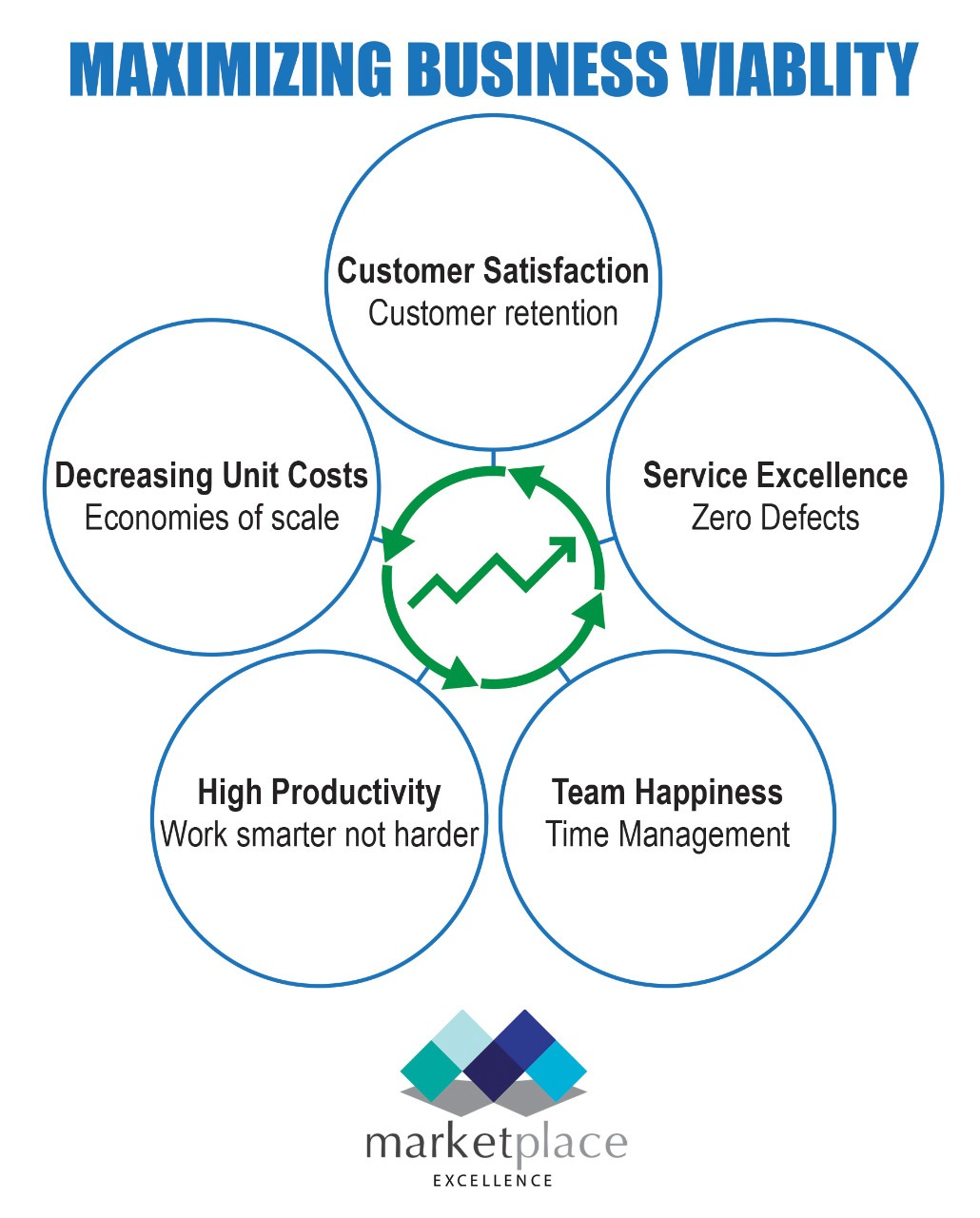“He who has a slack hand becomes poor, but the hand of the diligent makes rich.” – Proverbs 10:4
The primary concern of each nation is economic development because, with good leadership, it can reduce wealth inequality and foster greater socioeconomic well-being.
The collective thrust of successful businesses leads to economic growth, which drives economic development.
Our social partnership leaders must therefore build an enabling environment for existing businesses, startups and NGOs to create new jobs, stimulate the circular flow of money, make higher returns, reinvest these returns, and maximize business viability.
Simply put, business profitability may grow by increasing revenue and containing costs. However, business viability is not only about making profits. It also embraces customer satisfaction, service excellence, team happiness, enhanced productivity (increasing output for a given level of input), and decreased unit costs.
Customers provide us with revenue which is the “life” of a business and this is driven by sales, marketing, public relations and advertising. Customer satisfaction is paramount because it leads to customer retention and word-of-mouth marketing. Consumers trust their friends and listen to the advice from friends and family sometimes more so (according to a Nielson study) than they do to advertising.
There is a culture of “service excellence” which pervades any high-quality environment. It may be described as the “Zero Defects culture”. This may be best explained by a story.
A Japanese high-quality manufacturer received an order from an American company for 10,000 units of a product but had a query: “What do you mean when you say that you would accept 10% defects?” The Americans explained and the Japanese were still puzzled but diligently fulfilled the order. The Americans received two packages one marked “9,000 good items” and the other “1,000 defects”. Of course, the Japanese focus is a Zero Defects culture.
Happiness is the ultimate fulfilment of a human being. A happy team is a productive team, which benefits the individual and the business. Each team member has been provided with a gift of 24 hours per day of time to be used in the pursuit of happiness. The management of this time is the secret of the member’s success. A personal budget for the distribution of the time between (1) earning a living; (2) sleeping/exercising; and (3) personal/community service activities, coupled with the characteristics of commitment and punctuality; go a long way to achieving the pinnacle of happiness.
Enhanced productivity, simply stated, is achieved by working smarter than harder to achieve effectiveness and efficiency. Think out-of-the-box to get things done quickly. We are living in a technological age which facilitates the formal and informal learning process and provides powerful shortcuts to speed up processes. This then contributes to enhancing our global competitiveness.
Decreased unit costs have a major impact on increasing profitability. In production, when businesses leverage economies of scale they produce cost advantages, where the cost of unit of output decreases when scale increases.
There is an important concluding statement to the theme of maximizing business viability: Even though there are economies of scale in production, the same is not true in management.
If team members are employed to manufacture products or deliver services at some point there will be an optimal number of team members to deliver the output. If we scale the number of team members beyond this point, the costs will increase, and the operation will experience diminishing returns.
Let us adopt a holistic business approach as we accept the challenge of economic development in the Caribbean.

(Dr. Basil Springer GCM is a Change-Engine Consultant. His email address is basilgf@marketplaceexcellence.com. His columns may be found at www.nothingbeatsbusiness.com.)
